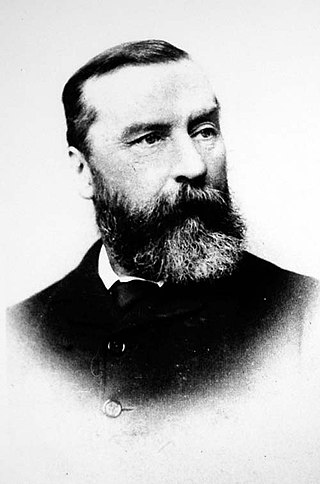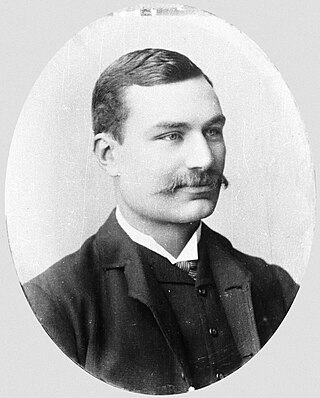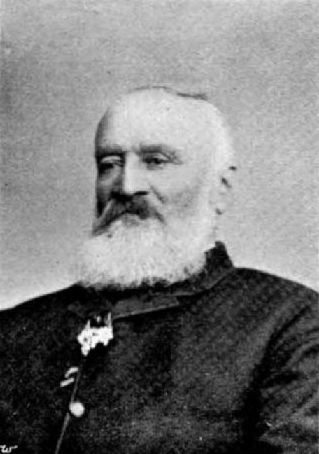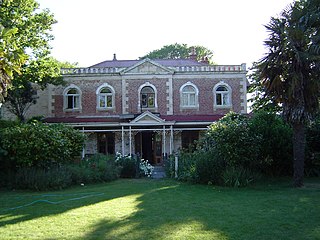
William Sefton Moorhouse was a British-born New Zealand politician. He was the second Superintendent of Canterbury Province.

William Rolleston was a New Zealand politician, public administrator, educationalist and Canterbury provincial superintendent.

The Lyttelton Rail Tunnel, initially called the Moorhouse Tunnel, links the city of Christchurch with the port of Lyttelton in the Canterbury region of New Zealand's South Island. It is the country's oldest operational rail tunnel, and is on the Lyttelton Line, one of the first railways built by Canterbury Provincial Railways.

William Reeves was a New Zealand 19th century journalist and politician. He was the father of the author and politician the Hon. William Pember Reeves.

Francis Joseph Rolleston was a New Zealand politician of the Reform Party.

Christchurch railway station is in the Canterbury region of New Zealand's South Island. It is on the Main North Line at Addington junction, and is the only remaining passenger railway station in the city: suburban passenger trains were cancelled due to lack of demand in the 1970s. It is the terminus of the South Island's two remaining long-distance passenger trains, the Coastal Pacific to Picton and the TranzAlpine to Greymouth.
Avon is a former New Zealand parliamentary electorate. It was created for the 1861 general election and existed until 1996. It was represented by 13 Members of Parliament and was held by Independents, Liberal Party or Labour Party representatives.

Arthur Edgar Gravenor Rhodes was a New Zealand Member of Parliament and Mayor of Christchurch.
Christchurch was a parliamentary electorate in Christchurch, New Zealand. It existed three times. Originally it was the Town of Christchurch from 1853 to 1860. From the 1860–1861 election to the 1871 election, it existed as City of Christchurch. It then existed from the 1875–1876 election until the 1881 election. The last period was from the 1890 election to the 1905 election. Since the 1946 election, a similarly named electorate called Christchurch Central has been in existence.
The 4th New Zealand Parliament was a term of the Parliament of New Zealand.
William Thomson was a 19th-century politician from Christchurch, New Zealand, originally from Scotland. He held office at all levels of government, from Parliament and Provincial Council to chairman of a road board. In his professional life, Thomson was an auctioneer, accountant and commission agent. He had rural holdings in Governors Bay and at the Esk River.

Alfred Cox was a 19th-century runholder and Member of the New Zealand House of Representatives. Born in New South Wales into an upper middle class military family, he was sent home to England to learn about farming. Upon returning to New South Wales, he heard about the large profits that were possible in South Canterbury and bought licences for land that he had not seen. He stocked the land, put a manager in charge and made another trip to England with his wife and their, at that time, small family. He moved to New Zealand permanently in 1857 and lived on his large farm, Raukapuka, which stretched from the sea to the foothills, and of which the homestead was located in present-day Geraldine. He sold his South Canterbury interests and moved to the Waikato, where he bought large land holdings in Hamilton and Thames. He tried to drain his swamp land and lost a lot of money with those ventures. He sold up in 1882 and moved to Christchurch, where he retired.
George Macfarlan was a New Zealand Member of Parliament representing the Lyttelton electorate.

The Rolleston Statue is a white marble statue situated outside Canterbury Museum on Rolleston Avenue in Christchurch, New Zealand. It commemorates William Rolleston, who was Superintendent of the Canterbury Province from 1868 until 1877.

The Lyttelton Times was the first newspaper in Canterbury, New Zealand, publishing the first edition in January 1851. It was established by the Canterbury Association as part of its planned settlement of Canterbury and developed into a liberal, at the time sometimes seen as radical, newspaper. A successor paper, The Star, is published as a free bi-weekly newspaper.

Linwood House was built as the homestead for Joseph Brittan, who, as surgeon, newspaper editor and provincial councillor, was one of the dominant figures in early Christchurch, New Zealand. The suburb of Linwood was named after Brittan's farm and homestead. Brittan's daughter Mary married William Rolleston, and they lived at Linwood House following Joseph Brittan's death. During that time, Rolleston was the 4th Superintendent of the Canterbury Province, and Linwood House served for many important political and public functions.

Joseph Brittan was a New Zealand surgeon, newspaper editor, and provincial councillor, was one of the dominant figures in early Christchurch. Born into a middle-class family in southern England, he followed his younger brother Guise Brittan to Christchurch, where he and his wife arrived in February 1852 with four children. Joseph Brittan soon got involved in the usual activities of early settlers and gained prominence in doing so. He had bought 100 acres on 10 July 1851 and took up 50 of this to the east of Christchurch that he converted to farmland. There, he built the family residence, and the suburb of Linwood was subsequently named after Brittan's farm and homestead of Linwood House.

William Guise Brittan, mostly known as Guise Brittan and commonly referred to as W. G. Brittan, was the first Commissioner of Crown Lands for Canterbury in New Zealand.
The 1867 Avon by-election was a by-election held on 11 March 1867 during the 4th New Zealand Parliament in the Christchurch electorate of Avon.

The Mayor of Lyttelton was the head of the municipal government of Lyttelton, New Zealand. The position existed from 1868, when the Borough of Lyttelton was formed.














